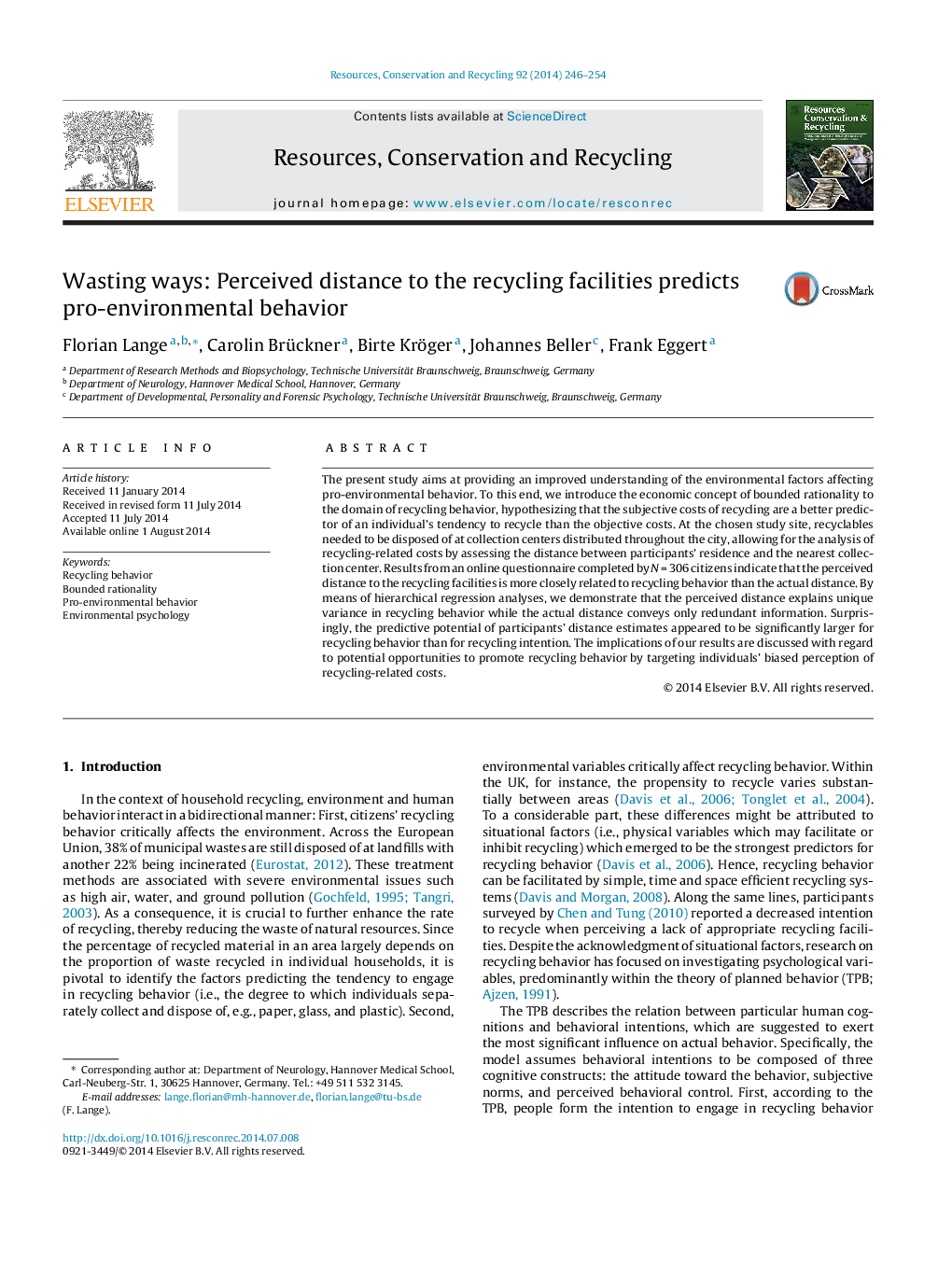| Article ID | Journal | Published Year | Pages | File Type |
|---|---|---|---|---|
| 7495390 | Resources, Conservation and Recycling | 2014 | 9 Pages |
Abstract
The present study aims at providing an improved understanding of the environmental factors affecting pro-environmental behavior. To this end, we introduce the economic concept of bounded rationality to the domain of recycling behavior, hypothesizing that the subjective costs of recycling are a better predictor of an individual's tendency to recycle than the objective costs. At the chosen study site, recyclables needed to be disposed of at collection centers distributed throughout the city, allowing for the analysis of recycling-related costs by assessing the distance between participants' residence and the nearest collection center. Results from an online questionnaire completed by NÂ =Â 306 citizens indicate that the perceived distance to the recycling facilities is more closely related to recycling behavior than the actual distance. By means of hierarchical regression analyses, we demonstrate that the perceived distance explains unique variance in recycling behavior while the actual distance conveys only redundant information. Surprisingly, the predictive potential of participants' distance estimates appeared to be significantly larger for recycling behavior than for recycling intention. The implications of our results are discussed with regard to potential opportunities to promote recycling behavior by targeting individuals' biased perception of recycling-related costs.
Related Topics
Physical Sciences and Engineering
Energy
Renewable Energy, Sustainability and the Environment
Authors
Florian Lange, Carolin Brückner, Birte Kröger, Johannes Beller, Frank Eggert,
